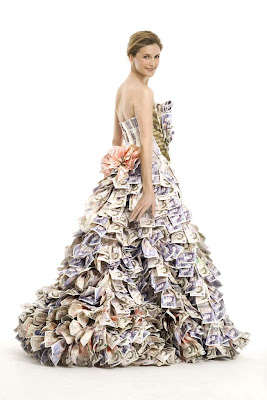Expectations on Novel Sales

How many books should you expect to sell if you publish a…
Vanity book?
33
Self Published book?
99
Small Press book?
500-1000
Another way of looking at it is that if you sell less than the average for your category, you will be considered a loser.
But you never know.
The numbers could be on your side.
1000 - The number of books in the first run of Harry Potter and the Philosopher's Stone, half of which were sold to libraries.
$2,500 - advance for Stephan King's first novel
$105,000 - the US advance for Harry Potter and the Sorcerer's Stone.
1.3 million - number of copies sold on the release day of Breaking Dawn
15 million - number of copies sold on the release day of Harry Potter and the Deathly Hallows
17 million - number of books sold for the entire Twilight series
400 million - number of books for the entire Harry Potter series
Yeah, yeah. We know. Mifty-gazillion books sold by I.M. Famous and thirty books sold through Publish America by Ikaint Ritegood. But what is a realistic expectation?
Medium Publisher or Mid-list book with a Big Publisher
5000
Big Publisher
10,000-15,000
So if you sell genre you probably need to sell at least 5000 to earn out your advance, and preferably more than 10,000 to prove you should be published again.
How much money should you expect to make per novel?
Average Advance for a Category Romance Novel
$1000-$1500
Average Advance for first Fantasy or Science Fiction Novel
$5000
Average Advance for Fantasy or Science Fiction Novel by a multi-published author
$12,000
Ok, thanks Google, but that's not what I meant. I meant per novel sold.
As far as I can tell, the average is about $1 per book sold. With a big publisher, you might receive less. Big publishers offer between 5% and 15% royalties, with 10% being common. That means a book has to sell for at least $10.00 for you to make $1. If it is a mass market paperback, I assume the author either is receiving 15% or else only makes about .80 cents on each book.
Small publishers, at least the epublishers I am familiar with, charge the consumer less for your books and pay you more, usually about $1.20 per book, or between 30% and 40% royalties. Large publishers want to charge a lot for ebooks, and give authors only 25% royalties, though this may change as a result of the Wylie fiasco. Amazon is apparently offering self-publishers an awesome 70% in royalties, though remember, this has to cover the upfront costs invested by the author/publisher. That means an indie author can offer books for half the price of a paperback, $3.99, and still make more than $2 per book. So, though an indie author may sell less books, she or he only has to sell half as many books to make the same amount as an author with a big publisher. (Correct me if I am wrong, indie publishers).
Just something to consider.
Jump in if I've missed something!
Comments
My sales have slowed down now, but I was consistently selling 2 copies a day, which isn't bad.
I have no idea if these numbers are good or bad. I'm thinking they are pretty good for a first self-published book. It will be interesting to see what the first year yields with sales and profit.
I hope this helps. I know you asked about numbers before, but I didn't really want to share anything until a month had gone by.
And I could hide numbers and stats, but they are what they are. I'm happy with what I've done. :)
AND THAT IS AWESOME.
Thanks for sharing those numbers! Those are very good sales. When you say online, do you mean the ebook or the paperback? Does "in person" count the autographed books that you ship?
I actually make $6.59 per book if I hand it in person to someone and don't have to pay double shipping on it (getting it shipped from CreateSpace and then having to pay shipping on it again to mail out).
So I'm making WAY more than 70% on some of the copies I sell. However, I don't expect to sell many more in-person copies, so my future profits for the rest of the year will probably remain at the average $2.63 per copy.
Sometimes, looking at these numbers, I'm wondering if going Indie and small-press is just better all the way around. For me. I'm not paying an agent a bunch of money, and I'm not having to deal with huge contracts and high-pressure deadlines. I'm also not feeling that if my work doesn't go "viral" or get really popular, that I'm a failure. I like remaining small for a lot of reasons.
I really, really, really, really like the idea of keeping my work MINE and not changing it much for anyone. Isn't that what writing is all about anyway?
Small presses typically offer authors generous percentages, generally far higher than those offered by big publishers, while still publishing books in paperback, eBook, and frequently hardcover formats and getting those books into brick-and-mortar stores. The low sales numbers typical of small press books reflect, more than anything else, the fact that small press publishers frequently take on high-risk projects without guaranteed sell-through, for reasons having more to do with art than profit.
The publishing options any given writer should choose arise from the sort of work she does and the sort of writing/publishing life she wants to have. We've got a discussion of these issues up on the Writers section of the Mercury Retrograde Press site at http://www.mercuryretrogradepress.com/writers.asp
Authors who just naturally want to write books destined for front-of-store are lucky people. They should go with big publishers. The rest of us must weigh our options.
I have more to say but the family needs me. Maybe I'll blog about this later....